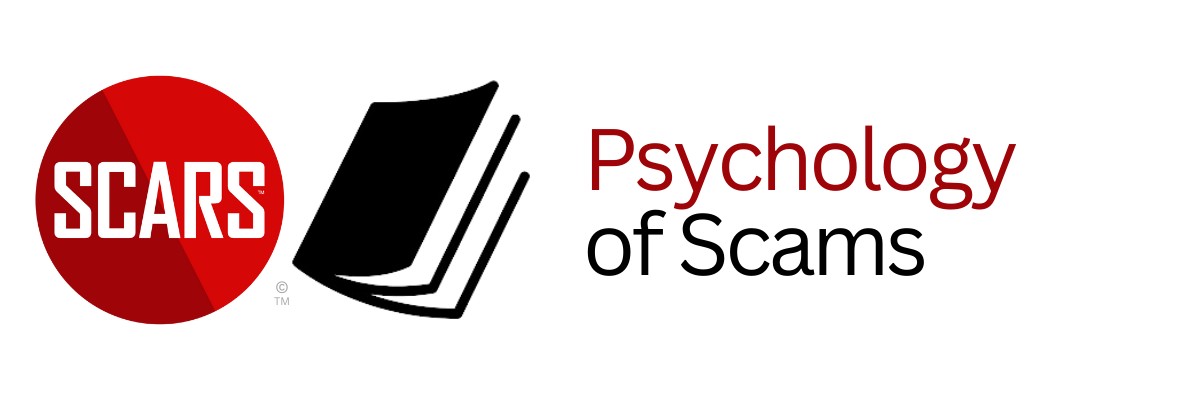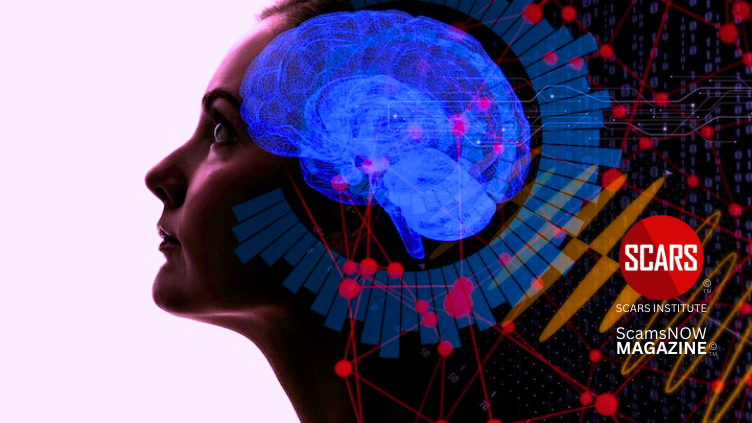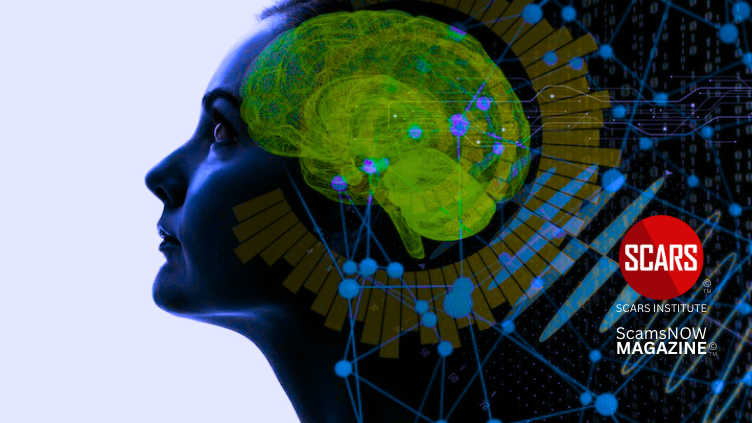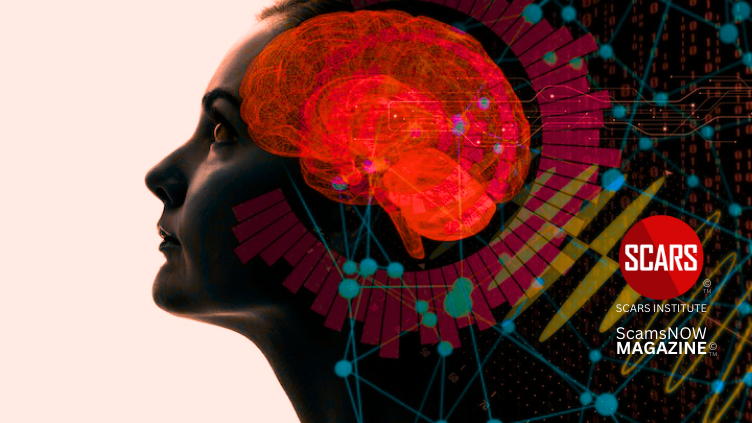Schemas Part 2: A Catalog of Schema/Mental Model Types
Better Understanding the Various Kinds Of Mental Model Cognitive Shortcuts
Primary Category: Psychology of Scams
Author:
• Tim McGuinness, Ph.D., DFin, MCPO, MAnth – Anthropologist, Scientist, Polymath, Director of the Society of Citizens Against Relationship Scams Inc.
About This Article
Schemas, also known as mental models, are cognitive frameworks that help individuals organize and interpret the vast array of information they encounter. They are built from life experiences, memories, and learned patterns and play a significant role in how we understand the world. Schemas help to simplify complex information and enable individuals to predict outcomes and respond to situations based on past experiences.
While these frameworks can help streamline decision-making and understanding, they are not always accurate reflections of reality. For scam victims, schemas often shape their perception of trust and relationships.
Initially, their schemas may be exploited by scammers who present themselves in ways that align with the victim’s preexisting mental models, making it difficult to see red flags. During and after the scam, these same schemas can hinder the victim’s recovery by distorting their ability to accept the reality of the deception, and by making it harder for them to trust the people trying to help them.
Recognizing and adjusting these mental models is an important part of the healing process for scam victims.

Better Understanding the Many Types of Schemas or Mental Models
Schemas or Mental Models are the internal representations of how we understand and interact with the world around us.
These mental models are not exact mirrors of reality but rather simplified frameworks formed from our accumulated experiences, observations, and interpretations. These mental models can be accurate or distorted, based on true or false information, and they shape how we see other people and situations.
For scam victims, these mental models play a significant role at both the beginning of the scam and during the scam, concealing the scammer’s true intentions and making it difficult to see the truth. After the scam, these mental models can even hinder the recovery process by preventing victims from accepting help.
“ Another way of thinking about schemas is that they are our expectation & entitlement generatoors”. — Tim McGuinness, Ph.D.
Understanding the Types of Schemas/Mental Models
Below is an expanded list of schemas or mental models:
Behavioral Schemas
Definition: Patterns of behavior that are learned and repeated in similar contexts.
Examples: Habits like brushing teeth, exercising, or checking emails in the morning.
Conceptual Schemas
Definition: Abstract mental representations that help understand complex ideas or theories.
Examples: Understanding concepts like democracy, evolution, or economics.
Conflict Resolution Schemas
Definition: Frameworks that guide how to approach and resolve conflicts.
Examples: Knowing when to compromise, negotiate, or assert one’s position.
Cultural Schemas
Definition: Shared frameworks of cultural knowledge that guide behavior and understanding in particular cultural contexts.
Examples: Understanding traditional practices, holidays, and customs in a specific culture.
Educational Schemas
Definition: Frameworks for understanding learning environments, educational expectations, and academic behaviors.
Examples: Knowing how to behave in a classroom, approach studying, or follow academic norms.
Emotional Schemas
Definition: Mental frameworks that help individuals understand and respond to their emotions.
Examples: Knowing when to express or suppress feelings like anger, sadness, or happiness.
Event Schemas (Scripts)
Definition: Mental blueprints for the sequence of actions to be followed in specific situations.
Examples: What to expect when going to a restaurant, attending a birthday party, or traveling by plane.
Family Schemas
Definition: Mental models about family roles and interactions.
Examples: How parents, siblings, or children are expected to behave in the family unit.
Gender Schemas
Definition: Organized knowledge about what is considered masculine or feminine in a particular society.
Examples: Beliefs about gender roles, such as “men are assertive,” “women are nurturing.”
Health Schemas
Definition: Mental representations of health, illness, and well-being.
Examples: Expectations about symptoms, treatments, or preventive health measures.
Identity Schemas
Definition: Representations about who one is, including one’s social, cultural, and personal identities.
Examples: How one views their nationality, ethnicity, or affiliations with groups.
Learning Schemas
Definition: Patterns of how individuals process and retain new information.
Examples: Learning strategies like repetition, association, or trial and error.
Moral/Ethical Schemas
Definition: Mental frameworks that guide individuals’ understanding of what is right or wrong.
Examples: Beliefs about justice, fairness, or ethical behavior.
Object Schemas
Definition: Focused on understanding inanimate objects, their features, and how they function.
Examples: Knowing the characteristics of cars, appliances, or tools.
Occupational Schemas
Definition: Knowledge structures related to specific jobs or careers.
Examples: Expectations of a manager’s role, responsibilities, and behaviors at work.
Person Schemas
Definition: Representations of information about specific people, including appearance, behaviors, and personality traits.
Examples: Schemas about friends, family members, or celebrities.
Political Schemas
Definition: Mental models about political beliefs, systems, and ideologies.
Examples: Understanding the behavior of political parties, voting patterns, and governance.
Problem-Solving Schemas
Definition: Frameworks that provide steps or strategies to approach solving specific problems.
Examples: Decision-making processes in troubleshooting mechanical issues or addressing interpersonal conflicts.
Relational Schemas
Definition: Mental frameworks that guide interactions within close relationships.
Examples: Expectations in parent-child relationships, romantic partnerships, or friendships.
Relationship Schemas
Definition: Frameworks that guide interactions and expectations in different types of relationships.
Examples: Knowing how friendships or romantic relationships should evolve over time.
Relationship-to-Authority Schemas
Definition: Mental models related to authority figures and how one should behave in their presence.
Examples: Understanding interactions with bosses, law enforcement, or government officials.
Religious Schemas
Definition: Frameworks related to beliefs, rituals, and behaviors within a religious context.
Examples: Expectations about worship, prayer, or religious duties.
Role Schemas
Definition: Expectations of how people in certain roles or positions should behave.
Examples: Understanding the behavior of teachers, doctors, or police officers.
Self-Schemas
Definition: Representations of knowledge about oneself, including traits, values, behaviors, and aspirations.
Examples: Viewing oneself as independent, compassionate, or ambitious.
Social Schemas
Definition: General knowledge about how people behave in social situations or groups.
Examples: Understanding appropriate behavior at weddings, meetings, or casual gatherings.
Status Schemas
Definition: Representations related to social or economic status and how individuals are treated based on their perceived rank.
Examples: Expectations about how wealthy or influential people should behave or be treated.
Stereotype Schemas
Definition: Simplified and generalized beliefs about a group of people based on limited information.
Examples: Assumptions about nationalities, professions, or gender roles.
Task Schemas
Definition: Mental frameworks that provide knowledge about how to perform a specific task.
Examples: Knowing the steps to cook a meal, repair a bicycle, or complete a work project.
Temporal Schemas
Definition: Mental models related to time and sequences.
Examples: Expectations about when certain life events should happen, like graduation, marriage, or retirement.
Work/Professional Schemas
Definition: Expectations and norms related to how individuals should behave in professional environments.
Examples: Understanding office etiquette, role responsibilities, and career development paths.
By expanding this list, we can appreciate how diverse and powerful schemas are in shaping human cognition and behavior across different domains of life. Each schema plays a role in how individuals interpret their environment, guiding their interactions, decisions, and perceptions.
Maladaptive Schemas
Maladaptive schemas are deep-rooted cognitive frameworks or patterns developed during childhood or early experiences that lead to unhealthy emotional and behavioral responses in adulthood. These schemas often interfere with an individual’s ability to form positive relationships, cope with stress, or navigate life’s challenges. They tend to be self-perpetuating and can lead to negative life patterns. Below is a list of common maladaptive schemas:
Abandonment/Instability
Description: The belief that significant others will not stay with you and will leave you in the end.
Behavior: Clinginess, dependency, or extreme emotional responses when faced with the potential loss of a relationship.
Approval-Seeking/Recognition-Seeking
Description: The excessive need for approval, recognition, or attention from others to maintain self-worth.
Behavior: Constantly seeking validation, overworking to gain approval, or conforming to others’ expectations.
Attention-Seeking
Description: Constant need for attention and validation to feel valued.
Behavior: Exaggeration, dramatizing problems, or becoming upset when not the center of attention.
Autonomy
Description: Excessive focus on being independent and avoiding reliance on others, often due to past emotional neglect.
Behavior: Refusing help, fear of vulnerability, or hyper-independence.
Control
Description: The need to dominate or control one’s environment or others to feel secure.
Behavior: Micromanaging, aggression, or manipulation in relationships.
Defectiveness/Shame
Description: The belief that one is flawed, inferior, or unlovable.
Behavior: Shame, low self-esteem, or withdrawal from social situations due to fear of rejection.
Dependence/Incompetence
Description: The belief that one cannot handle everyday responsibilities without help from others.
Behavior: Helplessness, over-reliance on others, or failure to attempt new things due to self-doubt.
Detachment
Description: The belief that emotional connections are unsafe or unnecessary, leading to withdrawal from emotional closeness.
Behavior: Isolation, difficulty forming relationships, or emotional numbness.
Distrust of Others
Description: A pervasive belief that others cannot be trusted or are out to harm or betray you.
Behavior: Suspicion, guardedness, or distancing oneself from others.
Emotional Deprivation
Description: The belief that one’s need for emotional support, attention, or empathy will not be met by others.
Behavior: Avoiding intimacy, feeling unworthy of love, or excessively demanding in relationships.
Emotional Inhibition
Description: The belief that one must suppress emotions or impulses to avoid criticism or rejection.
Behavior: Difficulty expressing emotions, being overly controlled, or avoiding emotional connections.
Emotional Over-Control
Description: The belief that emotions are dangerous or overwhelming and must be controlled at all times.
Behavior: Difficulty showing vulnerability, keeping emotions tightly bottled up, or over-reliance on logic.
Enmeshment/Undeveloped Self
Description: Over-involvement with others at the cost of one’s own identity or personal goals.
Behavior: Difficulty making decisions independently, lacking personal boundaries, or over-identifying with someone else’s emotions.
Entitlement/Grandiosity
Description: The belief that one is superior to others and entitled to special treatment.
Behavior: Arrogance, lack of empathy, or taking advantage of others.
Failure
Description: The belief that one is incapable of achieving success or meeting standards.
Behavior: Self-sabotage, avoidance of challenges, or chronic underachievement.
Helplessness
Description: A pervasive belief that one cannot handle life’s challenges or responsibilities without the assistance of others.
Behavior: Dependency, avoiding decision-making, or becoming overwhelmed by everyday tasks.
Insufficient Self-Control/Self-Discipline
Description: The belief that one cannot control their impulses or stick to goals.
Behavior: Procrastination, difficulty delaying gratification, or emotional outbursts.
Mistrust/Abuse
Description: The belief that others will hurt, abuse, lie to, or take advantage of you.
Behavior: Overly suspicious, distant, or defensive behaviors in relationships.
Negativity/Pessimism
Description: The belief that things will always go wrong, or the tendency to focus on the negative aspects of life.
Behavior: Chronic worry, avoiding taking risks, or expecting failure.
Punitiveness
Description: The belief that people (including oneself) should be harshly punished for mistakes or shortcomings.
Behavior: Harsh self-criticism, unforgiving attitudes, or expecting perfection from others.
Self-Sacrifice
Description: The belief that one must sacrifice their own needs for the sake of others.
Behavior: Guilt for asserting oneself, overworking, or burnout from over-helping others.
Social Isolation/Alienation
Description: The belief that one is different from others and does not belong.
Behavior: Avoidance of social interactions, feeling disconnected from others, or withdrawing in social settings.
Subjugation
Description: The belief that one must surrender their own needs or desires to avoid anger or rejection from others.
Behavior: Chronic people-pleasing, feeling trapped, or intense resentment toward others.
Unrelenting Standards/Hyper-Criticism
Description: The belief that one must meet extremely high standards to avoid criticism or failure.
Behavior: Perfectionism, workaholism, or constantly feeling inadequate.
Vulnerability to Harm or Illness
Description: The belief that catastrophe will strike at any moment, whether from illness, accidents, or external disasters.
Behavior: Hypervigilance, constant anxiety, or avoidance of risk-related situations.
Understanding these maladaptive schemas can help individuals identify patterns in their behavior that may stem from early life experiences and contribute to challenges in relationships, self-esteem, or emotional well-being. Therapy, especially schema therapy, is often used to help people recognize and modify these schemas to improve their quality of life.
-/ 30 /-
What do you think about this?
Please share your thoughts in a comment below!
Statement About Victim Blaming
SCARS Institute articles examine different aspects of the scam victim experience, as well as those who may have been secondary victims. This work focuses on understanding victimization through the science of victimology, including common psychological and behavioral responses. The purpose is to help victims and survivors understand why these crimes occurred, reduce shame and self-blame, strengthen recovery programs and victim opportunities, and lower the risk of future victimization.
At times, these discussions may sound uncomfortable, overwhelming, or may be mistaken for blame. They are not. Scam victims are never blamed. Our goal is to explain the mechanisms of deception and the human responses that scammers exploit, and the processes that occur after the scam ends, so victims can better understand what happened to them and why it felt convincing at the time, and what the path looks like going forward.
Articles that address the psychology, neurology, physiology, and other characteristics of scams and the victim experience recognize that all people share cognitive and emotional traits that can be manipulated under the right conditions. These characteristics are not flaws. They are normal human functions that criminals deliberately exploit. Victims typically have little awareness of these mechanisms while a scam is unfolding and a very limited ability to control them. Awareness often comes only after the harm has occurred.
By explaining these processes, these articles help victims make sense of their experiences, understand common post-scam reactions, and identify ways to protect themselves moving forward. This knowledge supports recovery by replacing confusion and self-blame with clarity, context, and self-compassion.
Additional educational material on these topics is available at ScamPsychology.org – ScamsNOW.com and other SCARS Institute websites.
-/ 30 /-
What do you think about this?
Please share your thoughts in a comment below!
Important Information for New Scam Victims
- Please visit www.ScamVictimsSupport.org – a SCARS Website for New Scam Victims & Sextortion Victims.
- SCARS Institute now offers its free, safe, and private Scam Survivor’s Support Community at www.SCARScommunity.org – this is not on a social media platform, it is our own safe & secure platform created by the SCARS Institute especially for scam victims & survivors.
- SCARS Institute now offers a free recovery learning program at www.SCARSeducation.org.
- Please visit www.ScamPsychology.org – to more fully understand the psychological concepts involved in scams and scam victim recovery.
If you are looking for local trauma counselors, please visit counseling.AgainstScams.org
If you need to speak with someone now, you can dial 988 or find phone numbers for crisis hotlines all around the world here: www.opencounseling.com/suicide-hotlines
Statement About Victim Blaming
Some of our articles discuss various aspects of victims. This is both about better understanding victims (the science of victimology) and their behaviors and psychology. This helps us to educate victims/survivors about why these crimes happened and not to blame themselves, better develop recovery programs, and help victims avoid scams in the future. At times, this may sound like blaming the victim, but it does not blame scam victims; we are simply explaining the hows and whys of the experience victims have.
These articles, about the Psychology of Scams or Victim Psychology – meaning that all humans have psychological or cognitive characteristics in common that can either be exploited or work against us – help us all to understand the unique challenges victims face before, during, and after scams, fraud, or cybercrimes. These sometimes talk about some of the vulnerabilities the scammers exploit. Victims rarely have control of them or are even aware of them, until something like a scam happens, and then they can learn how their mind works and how to overcome these mechanisms.
Articles like these help victims and others understand these processes and how to help prevent them from being exploited again or to help them recover more easily by understanding their post-scam behaviors. Learn more about the Psychology of Scams at www.ScamPsychology.org
SCARS INSTITUTE RESOURCES:
If You Have Been Victimized By A Scam Or Cybercrime
♦ If you are a victim of scams, go to www.ScamVictimsSupport.org for real knowledge and help
♦ SCARS Institute now offers its free, safe, and private Scam Survivor’s Support Community at www.SCARScommunity.org/register – this is not on a social media platform, it is our own safe & secure platform created by the SCARS Institute especially for scam victims & survivors.
♦ Enroll in SCARS Scam Survivor’s School now at www.SCARSeducation.org
♦ To report criminals, visit https://reporting.AgainstScams.org – we will NEVER give your data to money recovery companies like some do!
♦ Follow us and find our podcasts, webinars, and helpful videos on YouTube: https://www.youtube.com/@RomancescamsNowcom
♦ Learn about the Psychology of Scams at www.ScamPsychology.org
♦ Dig deeper into the reality of scams, fraud, and cybercrime at www.ScamsNOW.com and www.RomanceScamsNOW.com
♦ Scam Survivor’s Stories: www.ScamSurvivorStories.org
♦ For Scam Victim Advocates visit www.ScamVictimsAdvocates.org
♦ See more scammer photos on www.ScammerPhotos.com
You can also find the SCARS Institute’s knowledge and information on Facebook, Instagram, X, LinkedIn, and TruthSocial
Psychology Disclaimer:
All articles about psychology and the human brain on this website are for information & education only
The information provided in this and other SCARS articles are intended for educational and self-help purposes only and should not be construed as a substitute for professional therapy or counseling.
Note about Mindfulness: Mindfulness practices have the potential to create psychological distress for some individuals. Please consult a mental health professional or experienced meditation instructor for guidance should you encounter difficulties.
While any self-help techniques outlined herein may be beneficial for scam victims seeking to recover from their experience and move towards recovery, it is important to consult with a qualified mental health professional before initiating any course of action. Each individual’s experience and needs are unique, and what works for one person may not be suitable for another.
Additionally, any approach may not be appropriate for individuals with certain pre-existing mental health conditions or trauma histories. It is advisable to seek guidance from a licensed therapist or counselor who can provide personalized support, guidance, and treatment tailored to your specific needs.
If you are experiencing significant distress or emotional difficulties related to a scam or other traumatic event, please consult your doctor or mental health provider for appropriate care and support.
Also read our SCARS Institute Statement about Professional Care for Scam Victims – click here
If you are in crisis, feeling desperate, or in despair, please call 988 or your local crisis hotline – international numbers here.
More ScamsNOW.com Articles
A Question of Trust
At the SCARS Institute, we invite you to do your own research on the topics we speak about and publish. Our team investigates the subject being discussed, especially when it comes to understanding the scam victims-survivors’ experience. You can do Google searches, but in many cases, you will have to wade through scientific papers and studies. However, remember that biases and perspectives matter and influence the outcome. Regardless, we encourage you to explore these topics as thoroughly as you can for your own awareness.















![NavyLogo@4x-81[1] Schemas Part 2: A Catalog of Schemas/Mental Model Types - 2024](https://scamsnow.com/wp-content/uploads/2025/04/NavyLogo@4x-811.png)










![scars-institute[1] Schemas Part 2: A Catalog of Schemas/Mental Model Types - 2024](https://scamsnow.com/wp-content/uploads/2025/04/scars-institute1.png)

![niprc1.png1_-150×1501-1[1] Schemas Part 2: A Catalog of Schemas/Mental Model Types - 2024](https://scamsnow.com/wp-content/uploads/2025/04/niprc1.png1_-150x1501-11.webp)